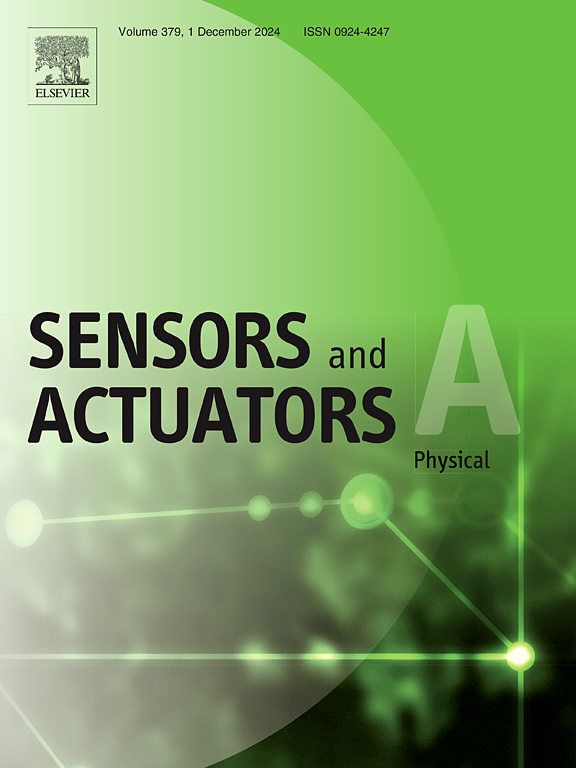基于递推最小二乘参数辨识的快速转向镜光电跟踪系统PID自整定控制研究
IF 4.9
3区 工程技术
Q2 ENGINEERING, ELECTRICAL & ELECTRONIC
引用次数: 0
摘要
在基于快速转向镜(FSM)的光电跟踪系统中,传统PID算法在参数摄动下无法达到最优控制性能;以机器学习为代表的智能算法往往不能满足快速响应的要求。针对这一问题,本文提出了一种基于最小二乘法的带折扣测量系统参数辨识自整定PID控制策略(RDM-STC-PID)。该算法通过输入输出信号在线识别FSM系统的参数,使控制器实现自整定。最小二乘法与折扣测量识别算法利用加权因子和遗忘因子抑制噪声,适应系统变化。加权因子提高了对新数据的敏感性,遗忘因子降低了旧数据的影响。随后,利用辨识出的系统参数,通过最优极点零组态法精确设计自整定控制器参数。创建具有定量参数可变性的FSM系统是具有挑战性的。因此,本文通过硬件在环实验和物理实验对该方法进行了验证。实验结果表明,与传统PID控制器和采用常规辨识方法的自整定控制相比,采用该方法的系统在参数扰动前后的鲁棒性都有显著提高。具体来说,阶跃响应的稳定调节时间为40 ms,超调量为2.25,积分平方误差降至1.524,性能有了显著提高。本文章由计算机程序翻译,如有差异,请以英文原文为准。
Research on PID self-tuning control based on recursive least squares parameter identification for the fast steering mirror-based optoelectronic tracking system
In the optoelectronic tracking system based on fast steering mirror (FSM), the traditional PID algorithm cannot achieve optimal control performance under parameter perturbations; intelligent algorithms, represented by machine learning, often fail to meet fast response requirements. To address this issue, this paper proposes a control strategy based on Least Squares Method with Discounted Measurement system parameter identification self-tuning PID control (RDM-STC-PID). This algorithm identifies the parameters of the FSM system online with input and output signals, allowing the controller to achieve self-tuning. The Least Squares Method with Discounted Measurement identification algorithm utilizes weighting factors and forgetting factors to suppress noise and adapt to system changes. The weighting factor enhances sensitivity to new data, while the forgetting factor reduces the influence of old data. Subsequently, the identified system parameter is used to precisely design the self-tuning controller parameters through an optimal pole-zero configuration method. Creating FSM system with quantitative parameter variability is challenging. Therefore, this paper verifies the approach through hardware-in-the-loop and physical experiments. The experimental results demonstrate that the system with the proposed method exhibits significantly improved robustness both before and after parameter disturbances, compared to traditional PID controllers and self-tuning control with conventional identification methods. Specifically, the step response achieves a stable regulation time of 40 ms, an overshoot of 2.25, and a reduction in integral squared error to 1.524, reflecting a marked improvement in performance.
求助全文
通过发布文献求助,成功后即可免费获取论文全文。
去求助
来源期刊

Sensors and Actuators A-physical
工程技术-工程:电子与电气
CiteScore
8.10
自引率
6.50%
发文量
630
审稿时长
49 days
期刊介绍:
Sensors and Actuators A: Physical brings together multidisciplinary interests in one journal entirely devoted to disseminating information on all aspects of research and development of solid-state devices for transducing physical signals. Sensors and Actuators A: Physical regularly publishes original papers, letters to the Editors and from time to time invited review articles within the following device areas:
• Fundamentals and Physics, such as: classification of effects, physical effects, measurement theory, modelling of sensors, measurement standards, measurement errors, units and constants, time and frequency measurement. Modeling papers should bring new modeling techniques to the field and be supported by experimental results.
• Materials and their Processing, such as: piezoelectric materials, polymers, metal oxides, III-V and II-VI semiconductors, thick and thin films, optical glass fibres, amorphous, polycrystalline and monocrystalline silicon.
• Optoelectronic sensors, such as: photovoltaic diodes, photoconductors, photodiodes, phototransistors, positron-sensitive photodetectors, optoisolators, photodiode arrays, charge-coupled devices, light-emitting diodes, injection lasers and liquid-crystal displays.
• Mechanical sensors, such as: metallic, thin-film and semiconductor strain gauges, diffused silicon pressure sensors, silicon accelerometers, solid-state displacement transducers, piezo junction devices, piezoelectric field-effect transducers (PiFETs), tunnel-diode strain sensors, surface acoustic wave devices, silicon micromechanical switches, solid-state flow meters and electronic flow controllers.
Etc...
 求助内容:
求助内容: 应助结果提醒方式:
应助结果提醒方式:


